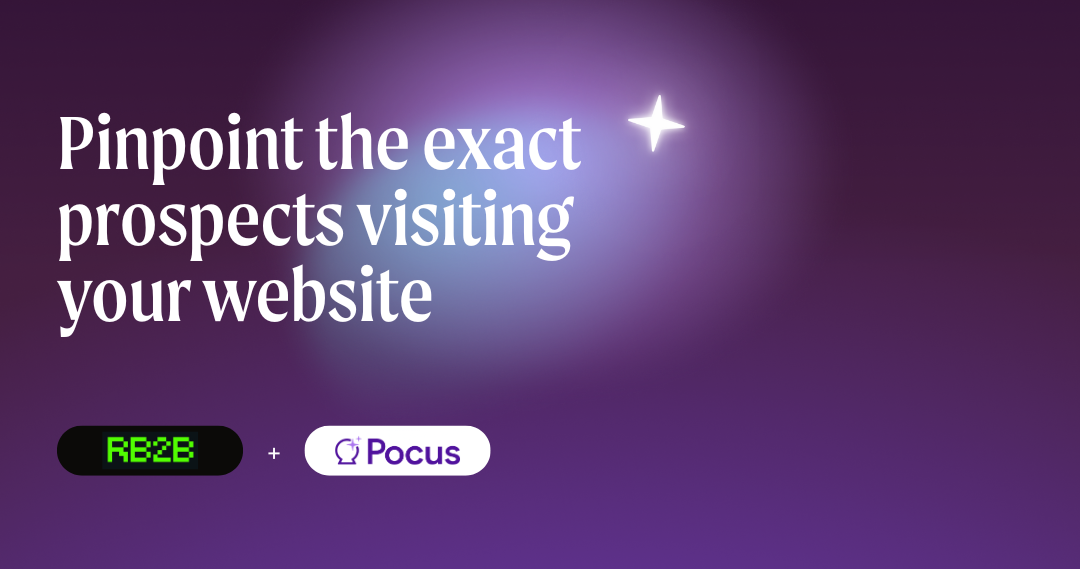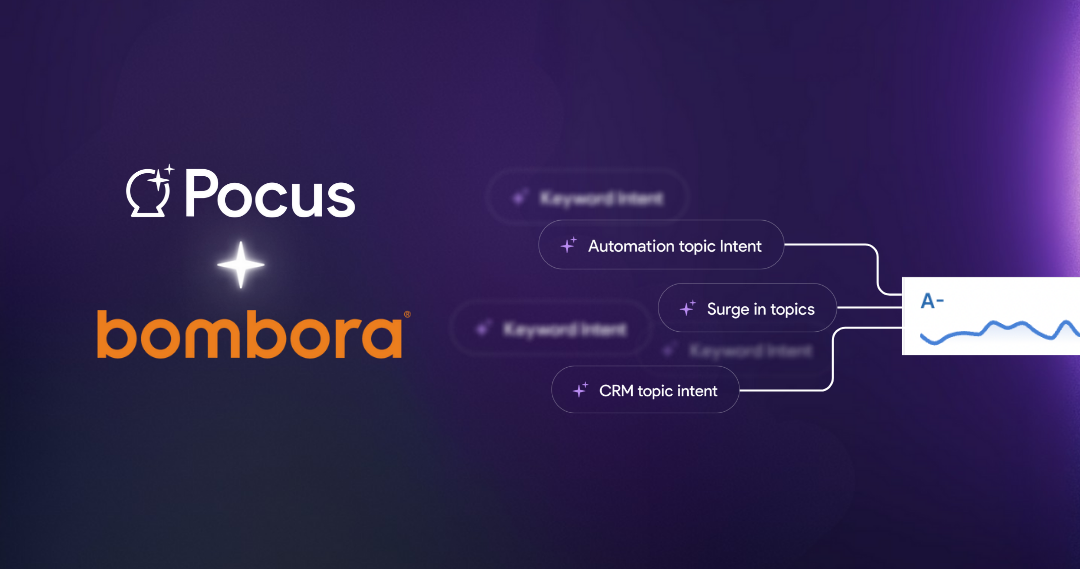If you’re on the market for a Product-Led Sales platform you’re probably trying to solve for one (or a combination of) these challenges.
- Spotting the right revenue opportunities where sales should be invested
- Understanding when to reach out to customers and what actions your reps should take next
- Saving sales reps time digging through data in multiple tools
- Consolidating your existing tech stack into that elusive “source of truth.”
You’ve written the strategy, hired the team, and now it's time to buy the tools.
But let’s face it, this is a nascent category, there are a ton of vendors (hi 👋) , and it’s getting harder for organizations to figure out who has the best solution. Our advice? Choosing the right PLS solution for your team will come down to how well a vendor can align to your short term and long term goals, their ability to serve your use case, and if they can align to your timeline for success.
Categories to consider
After talking to the PLS community and analyzing success stories from PLS leaders, we were able to map out 7 categories that were important to consider when choosing a solution.
- Ease of onboarding customer and product usage data
- Easy to configure + customizable set up
- Deep 360 insights about customers
- Shorten the time from insight to action
- Simplify PLS set up and reporting
- Customer+community expertise
- Securely store your customer and product usage data
Ease of onboarding customer and product usage data
This one is key — a good PLS tool won’t require too much data manipulation before ingesting it. If you find yourself maneuvering and coming up with hacky workarounds to fit your data into a rigid system… it might not be the best fit tool for you.
Criteria to evaluate
- Can the integrations be set up self-serve (or with minimal engineering resources)?
- Can data onboarding be done in less than 1 day and without major clean up required from data team?
- Do they integrate with all of your must have data sources today?
- Can they read and write data to CRM (i.e. ability to update or create new fields, objects etc.)?
- Can they ingest any type of data (i.e. structure, unstructured, time-series event data)?
Easy to configure/customizable set up
A flexible data model can go a long way towards saving your set up team time (and major headaches). If you have to use a specific data model, you can bet making changes to your configuration won’t be easy.
Having the option to make low-code (or even no-code) adjustments allows RevOps and admins to tweak as necessary, a very important part of running playbooks and experimenting with your PLS motion.
Criteria to evaluate
- Can sales reps create their own data viz from scratch without engineering support?
- Can you create scoring models without code?
- Do they support multiple qualification/scoring models?
- Is the data model flexible (i.e. no required fields or pre-defined schema)?
- Can admins set default dashboards and views for different teams (i.e. CSM views vs. SDR views)?
Deep 360 insights about customers
While scores and numbers are helpful, it’s also important for Sales teams to understand where those numbers are coming from and be able to drill down for deeper insights into things such as: who’s a power user, who’s a decision maker… instead of just accounts and users.
Criteria to evaluate
- Do they provide a unified view of customers across sources (CRM and Data Warehouse), providing a 360-view of each customers?
- Can the platform show insights at any level of granularity from aggregations at the account level down to workspaces or services like APIs?
- Can the platform show you the levers behind why an account is qualifying as an excellent lead (PQA/PQL)?
- Can you filter insights based on rep or team ownership easily (i.e. filter views by account owner, territory, or book of business) ?
- Can the platform show various data over time? Like showing usage spikes in the last month or increases in invites week over week?
Shorten the time from insights to action
Having access to previously locked data in the dark corners of your data warehouse… only accessible by your data engineering team…is awesome. But, being able to quickly action that data is a game changer.
When looking for the right PLS tool, ask whether it has the power to push data out to the rest of your tech stack and automate certain actions. For example, once a customer hits a milestone in your product, you should be able to trigger actions such as creating an opportunity inside Salesforce, or sending an email via Husbpot, or just nudging a sales rep to reach out.
Criteria to evaluate
- Do they have out of the box functionality to push data to sales and marketing tools like Outreach or Hubspot? (I.e. can I add a lead to an automated sequence or marketing campaign)
- Can the platform alert reps in Slack about hot leads, accounts at risk etc?
- Do they have a task management process for reps to go through leads efficiently (i.e. an inbox, ability to mark things as completed, or snoozed until a later date)
- Can they automatically sync data from the platform to the CRM? (i.e. Reverse ETL)?
Simplify PLS set up and reporting
There’s a big difference between a data dashboard your team somes looks at and real-time insights you can operationalize quickly. Look for a PLS platform that gives you the flexibility to have different playbooks for each team and provides a clear path to action (not just data). The alternative is living in silos with a variety of tools and strategy docs — making it impossible to measure the impact of your PLS motion in real-time.
Criteria to evaluate
- Can you set up multiple sales playbooks for different goals (i.e. free to paid conversion, expansion, churn prevention, etc.)?
- Can the platform handle routing based on teams, territories, and ownership structure?
- Can you export data easily from the platform to a CSV or Google Sheet?
- Can the platform auto-generate Google slide decks with insights about customers?
- Can the platform measure conversion rate based on actions taken?
Customer + community expertise
Product-Led Sales is a new category that is largely being shaped and defined by the needs of the market — which in turn has formed some pretty awesome communities. When looking for a PLS vendor, it’s important to take into account how in tune they are with their customers and the broader PLS community when making product decisions, as well as offering guidance, educational content, and PLS expertise.
Criteria to evaluate
- Do they already have customers of a similar size, PLS goals, etc. as yours?
- Do they have case studies? Do the outcomes delivered by those case studies reflect your goals?
- Are they willing to introduce you to an existing customer?
- Do they have a community where you can interact with PLS experts?
- Do they have expertise on Product-Led Sales internally to help with set up and advise on playbooks/goals? Are they seen as experts in the market (by analyst firms/peers)?
Securely store your customer and product usage data
This is a no brainer in 2022 but it's worth stating as a category for evaluation. How much do you trust this vendor with your customer data? Are they best in class? Make sure they have received the necessary stamps of approval and their culture respects data privacy, as well as security best practices.
Criteria to evaluate
- Are they SOC 2 Type I and Type II certified?
- Are the processes and capabilities GDPR and CCPA compliant?
- Do they have a DPA and privacy policy?
- Do they offer SAML-based SSO and RBAC?
🪄 Download the template
Ready to choose the best PLS vendor? Download this template and get scoring!
.avif)

.png)


.png)
.jpg)






